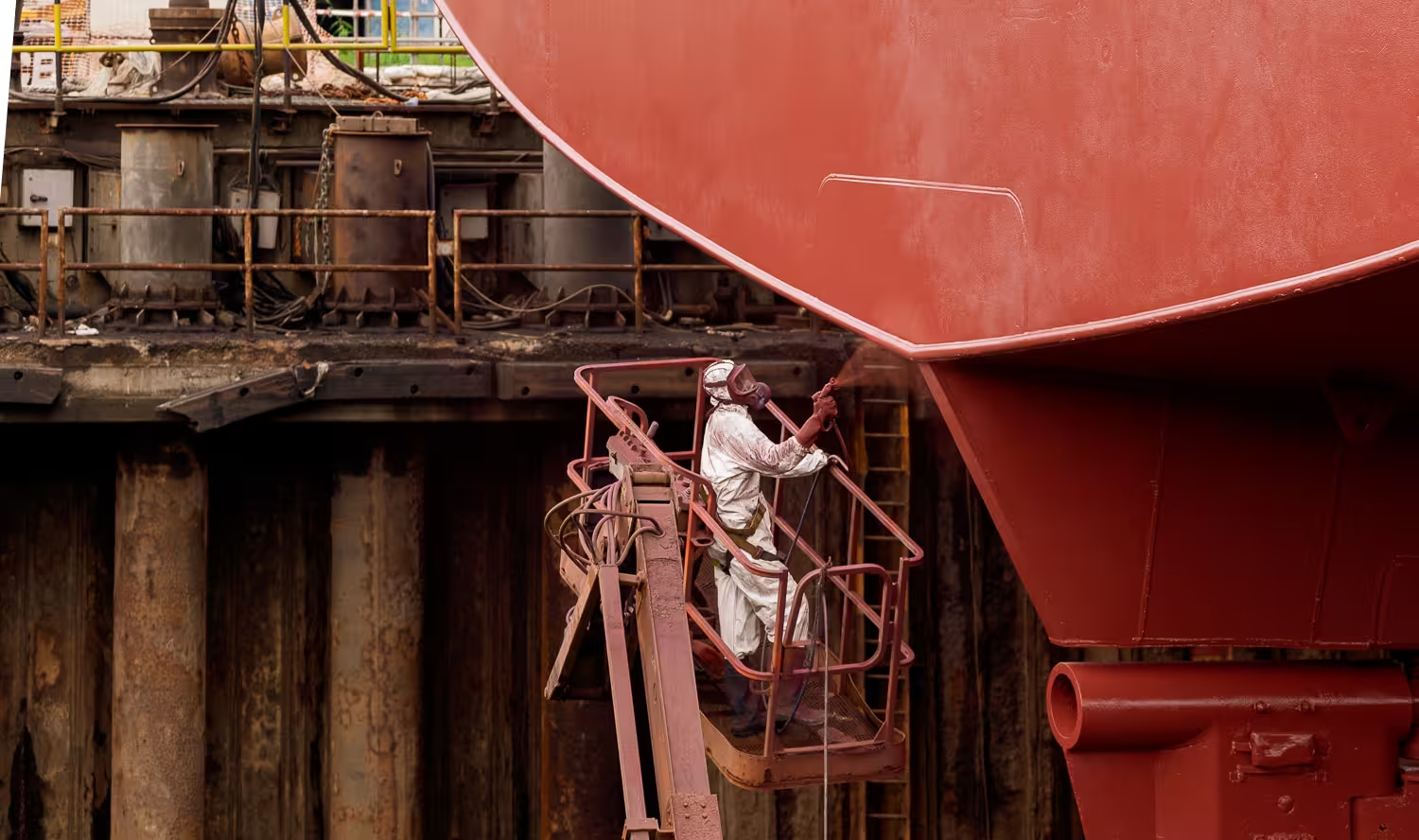Beyond Blue Horizons
We operate with a vision that extends beyond exceptional service.

At Sea Transport Services Nigeria Limited, we're guided by the UN's Sustainable Development Goals (SDGs), specifically focusing on Environmental stewardship (SDG 14) and Responsible Consumption and Production (SDG 12).
We implement eco-friendly practices like utilizing fuel-efficient vessels and implementing strict waste management protocols.
Our Commitment to Sustainability
Safety First: A Shared Commitment
Unwavering Crew Safety
The safety of our crew is paramount (SDG 3). We cultivate a rigorous safety culture onboard our vessels, implementing comprehensive training programs, rigorous safety protocols, and regular emergency preparedness drills. This unwavering commitment minimises risks to our crew and fosters a healthy working environment.
Protecting Our Marine Environment
Accidents at sea can have devastating consequences for marine life and ecosystems (SDG 14). By prioritising safety, we significantly reduce the risk of spills, collisions, and other environmental damage. Additionally, we invest in advanced safety technology to further safeguard the delicate balance of the marine environment.
Empowering Local Communities: Building a Thriving West Africa
Investing in Local Development
We actively contribute to the economic well-being of the communities we operate in (SDG 8). We collaborate with local organisations to support education initiatives, healthcare programs, and infrastructure development projects. These investments empower local communities and create opportunities for a brighter future.
Building Local Capacity in Maritime
The West African maritime industry holds immense potential for growth and development (SDG 10). STS offers vital training and employment opportunities for local seafarers, technicians, and other maritime professionals. By nurturing local talent, we contribute to a more skilled and diverse workforce, driving long-term growth within the industry.
Steering Towards a Greener Future
Fuel Efficiency Initiatives
We are constantly exploring ways to reduce our environmental footprint, particularly in terms of fuel consumption (SDG 7 & 13). We implement operational practices that optimise fuel efficiency, such as route planning and slow steaming techniques. Additionally, we invest in modern vessels equipped with fuel-efficient technologies.
Responsible Waste Management
We prioritise responsible waste disposal and minimises waste generation onboard our vessels (SDG 13). We implement comprehensive waste management plans, utilise recycling and waste reduction strategies, and adhere to strict international regulations for waste disposal at sea.
Fostering Diversity and Inclusion: A Stronger Workforce for a Stronger Future
Championing Diversity
STSN fosters a workplace culture that embraces diversity and inclusion (SDG 5 & 10). We are an equal opportunity employer that values talent and experience regardless of race, gender, religion, ethnicity, or sexual orientation. By actively building a diverse workforce, we harness the power of a wider range of perspectives and experiences, leading to innovation and a more robust organisation.
Breaking Barriers in Maritime
The maritime industry has traditionally faced challenges with diversity and inclusion. STSN strives to break down these barriers by actively encouraging women and underrepresented groups to pursue careers at sea. We offer targeted training programs and mentorship opportunities to support and empower individuals from diverse backgrounds.
Our Approach to ensuring transparency and
collaboration is essential to achieving our
sustainability goals. We ensure this by;
By aligning with the UN SDGs, we are charting a course for a sustainable future. We are committed to leaving a positive legacy – one that prioritizes safety, empowers communities, protects the environment, and fosters a thriving, inclusive maritime industry in West Africa.
We meticulously track our progress in key sustainability areas, measuring metrics like fuel efficiency, waste reduction, and training hours for local communities.
We believe in open communication. We regularly report on our sustainability initiatives and achievements through annual reports and website updates.
We actively engage with stakeholders, including industry partners, regulatory bodies, and local communities, to promote sustainable maritime practices in West Africa.
